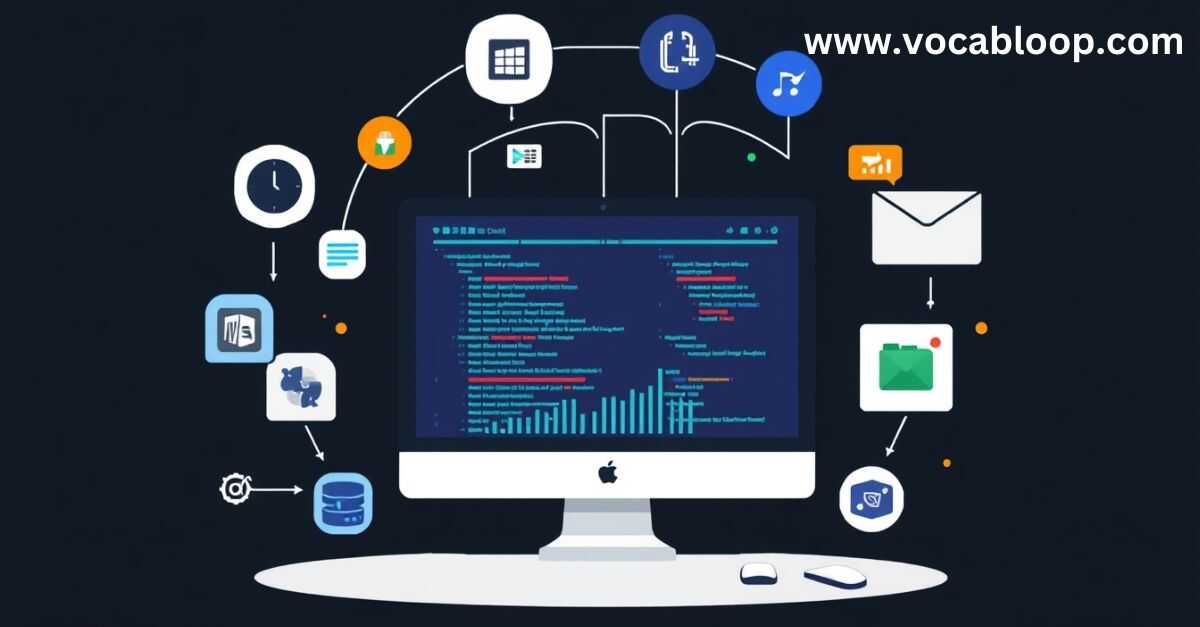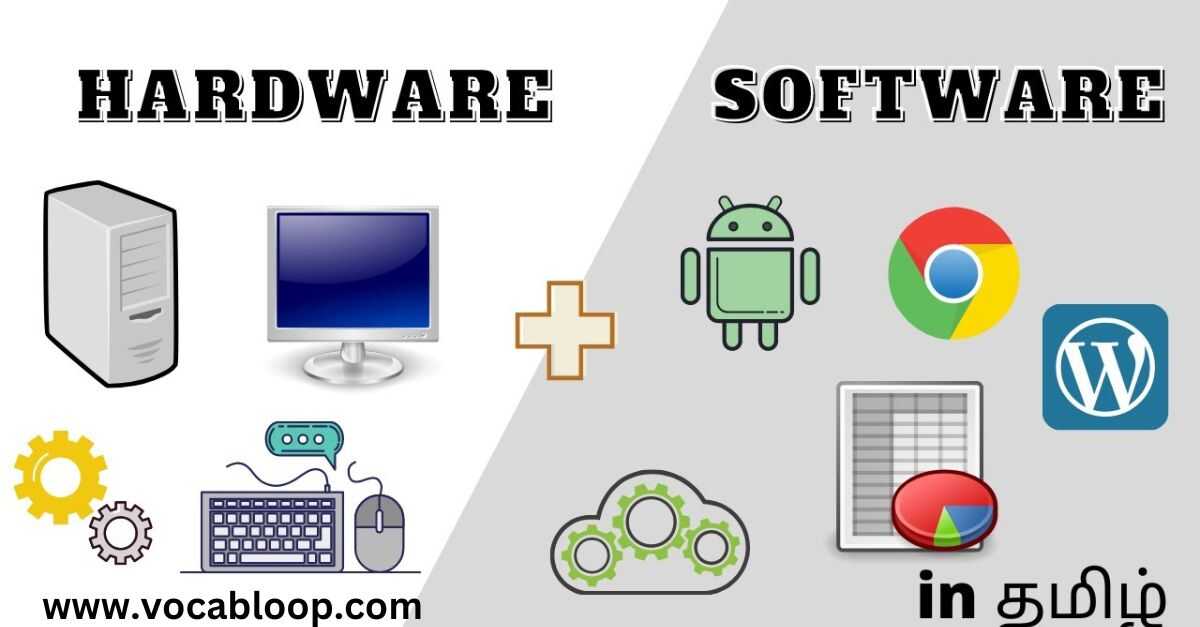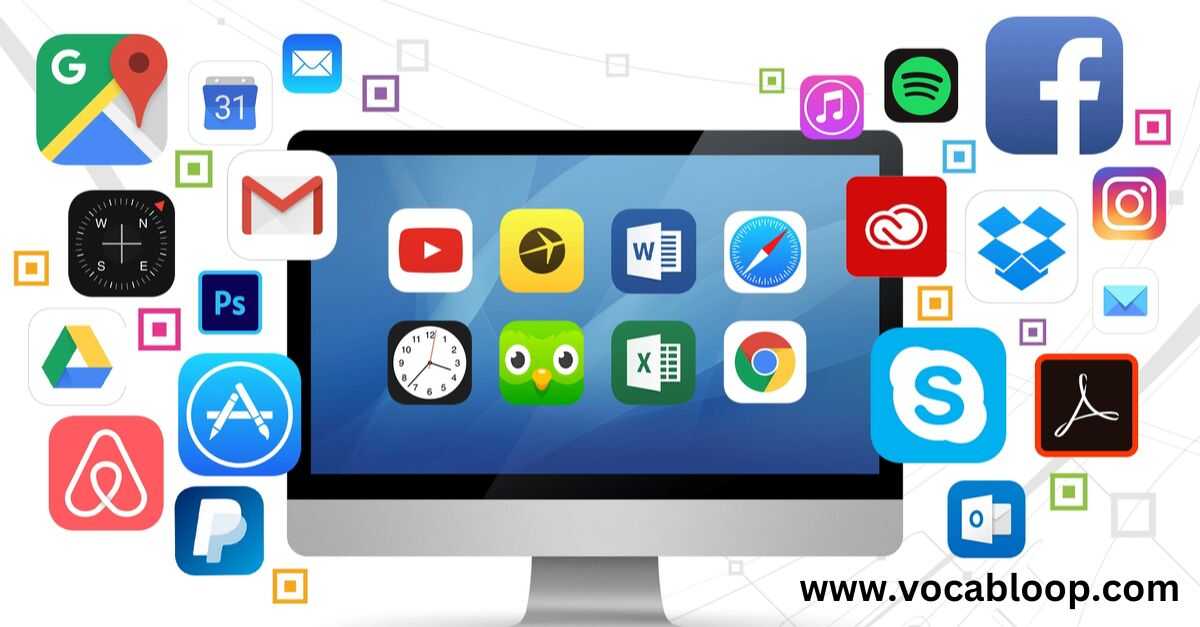In the ever-evolving world of technology, even seemingly simple grammatical questions can spark heated debates. One such conundrum that often puzzles both tech enthusiasts and language lovers is the plural form of “software“. Is it “software” or “softwares”?
This question, while appearing trivial at first glance, carries significant weight in technical communication and documentation. Let’s dive deep into this linguistic labyrinth and shed light on the correct usage, its origins, and the implications for the tech world.
What Does the Word “Software” Mean?

Before we tackle the plural puzzle, it’s crucial to understand what software actually means.
Software refers to the set of instructions, programs, or data used to operate computers and execute specific tasks. Unlike hardware, which encompasses the physical components of a computer system, software is intangible. It’s the brain to hardware’s brawn, the invisible force that brings our devices to life.
The term “software” was coined in 1953 by statistician John W. Tukey, long before the advent of personal computers. It emerged as a playful term to contrast with hardware, which was already in use to describe physical machines.
Key characteristics of software include:
- Intangibility
- Flexibility and ease of change
- Replicability at minimal cost
- Creation through programming languages
Plural of software is also “Software“.Because the noun software is uncountable.
Software and Hardware: A Tale of Two Techs

To truly grasp the nature of software, it’s helpful to contrast it with its physical counterpart, hardware.
| Aspect | Software | Hardware |
| Nature | Intangible | Tangible |
| Flexibility | Easily modifiable | Difficult to modify |
| Lifespan | Can be eternal if maintained | Wears out over time |
| Replication | Easily copied | Requires manufacturing |
| Interaction | Processed by hardware | Processes software |
| Examples | Operating systems, apps | CPU, RAM, Hard drive |
This fundamental difference between software and hardware plays a crucial role in how we use these terms, especially when it comes to pluralization.
Singular Form of Software
In its singular form, “software” is straightforward. It’s used to refer to a single program or a collection of programs as a whole. For example:
- “This software is essential for our project management.”
- “The new software update includes several bug fixes.”
However, the confusion arises when we need to talk about multiple distinct programs or types of software. This brings us to our central question.
Plural of “Software”: Software or Softwares?

Here’s the definitive answer: The correct plural of “software” is “software”.
Why? Because “software” is what’s known as a mass noun or uncountable noun. Mass nouns refer to things that can’t be counted as separate units in ordinary usage. Other examples include “water,” “rice,” and “information.”
Just as we don’t say “informations” or “rices,” we don’t say “softwares.” Instead, when we need to refer to multiple distinct software programs or types, we use quantifiers or descriptive phrases. For example:
- “We use several pieces of software in our daily operations.”
- “The company develops various software solutions for different industries.”
- “I’ve installed multiple software programs on my new computer.”
Defining Software and Distinguishing it from Hardware
To further clarify the usage, let’s delve deeper into what constitutes software and how it differs from hardware.
Software encompasses:
- System software: Operating systems, device drivers, utilities
- Application software: Word processors, web browsers, games
- Programming software: Compilers, debuggers, IDEs
Hardware, on the other hand, includes:
- Processing units: CPUs, GPUs
- Storage devices: Hard drives, SSDs, RAM
- Input/Output devices: Monitors, keyboards, printers
While we can easily count individual pieces of hardware (two monitors, three keyboards), software doesn’t lend itself to this kind of enumeration, hence its status as a mass noun.
Compound Word: Software
“Software” is a compound word, formed by combining “soft” and “ware”. This composition gives us a clue to its usage. Just as we don’t pluralize “ware” in “hardware” or “silverware,” we don’t pluralize “software.”
This compound nature reinforces its treatment as a mass noun, encompassing all the intangible components that make our hardware function.
Irregular Plural Nouns with Unchanged Forms
“Software” isn’t alone in maintaining its form in both singular and plural contexts. English has several nouns that behave similarly:
- Sheep: One sheep, many sheep
- Fish: One fish, school of fish
- Deer: A deer, herd of deer
- Aircraft: An aircraft, fleet of aircraft
These examples illustrate that unchanging plural forms, while uncommon, are not unprecedented in English.
Application Examples of Software

To better understand how to use “software” in various contexts, let’s look at some practical examples:
- Single program: “This antivirus software protects against the latest threats.”
- Multiple distinct programs: “Our IT department manages several software applications, including email clients and project management tools.”
- Software as a category: “The company invests heavily in software development.”
- Specific types: “We use different types of software, such as productivity software and design software.”
Notice how in each case, “software” remains unchanged, but the surrounding words provide context for quantity or specificity.
Origin of the Word Software
The term “software” has an interesting history that sheds light on its usage:
- Coined in 1953 by statistician John W. Tukey
- First recorded use in 1958 in an article in American Mathematical Monthly
- Entered common usage in the 1960s as computer technology evolved
- Contrasted with “hardware”, which was already in use for physical components
This relatively recent origin explains why its grammatical usage might still be evolving and causing confusion.
Synonyms for Software
While “software” is the most common term, several synonyms and related terms are used in various contexts:
- Computer programs
- Applications or apps
- Digital solutions
- Code
- Firmware (for software embedded in hardware)
These terms can often be useful when you need to avoid repeating “software” too frequently in a text.
Some More Nouns like “Software” and Their Plurals
“Software” isn’t the only tech-related term that causes pluralization confusion. Here are some similar nouns and their correct usage:
- Data: Like “software,” “data” is technically a plural (singular: datum), but it’s often used as a mass noun.
- Correct: “The data is inconclusive.”
- Also correct: “These data suggest a new approach.”
- Firmware: Similar to software, remains unchanged.
- “The firmware updates are essential for device security.”
- Malware: Also unchanged in plural form.
- “Various types of malware pose threats to our systems.”
- Freeware: Remains the same in plural contexts.
- “We utilize several freeware programs in our operations.”
Understanding these similar terms can help reinforce the correct usage of “software.”
Use Softwares as a Plural of “Software”

While “softwares” is grammatically incorrect, you might encounter it in certain contexts:
- Non-native English speakers might use it, especially if their native language pluralizes differently.
- In some informal or colloquial settings, particularly in regions where English is a second language.
- Occasionally in technical jargon, though this usage is generally frowned upon in professional circles.
It’s important to note that while language evolves and usage can change over time, as of now, “softwares” is not considered correct in formal English.
Examples in Context as Singular and Plural
To further illustrate the correct usage, let’s look at some examples in both singular and plural contexts.
Singular Usage (“Software”)
- “The new accounting software has streamlined our financial processes.”
- “This video editing software offers a wide range of features for professionals.”
- “The company is developing innovative software for autonomous vehicles.”
Plural Usage (Alternatives for “Softwares”)
- “Our IT department manages various software programs for different departments.”
- “The tech giant offers multiple software solutions for business intelligence.”
- “Students need to familiarize themselves with different types of software used in the industry.”
- “The company’s portfolio includes several pieces of software for data analysis.”
FAQs
Why is “software” considered uncountable?
“Software” is a mass noun, meaning it refers to something intangible and typically uncountable in everyday usage, similar to “water” or “information.” It represents a category or collection of programs rather than individual items.
Can I use “softwares” in any context?
While “softwares” is technically incorrect in formal English, it may occasionally appear in informal settings or among non-native English speakers. However, it is better to use phrases like “software programs” or “types of software” for clarity.
How do I refer to multiple software applications?
Use quantifiers or descriptive terms. Examples include:
- “Several pieces of software”
- “Multiple software programs”
- “Various types of software”
Are there similar tech-related nouns with unchanged plurals?
Yes, several tech terms behave similarly, such as:
- Data: Often treated as singular in modern usage, though technically plural.
- Firmware, malware, and freeware: These remain unchanged in plural contexts.
What is the origin of the term “software”?
The term was coined in 1953 by statistician John W. Tukey. It was first recorded in 1958 and gained widespread use in the 1960s, contrasting with “hardware,” which referred to the physical components of a computer.
Conclusion
In the rapidly evolving world of technology, precision in language is crucial. While it might be tempting to add an ‘s’ to “software” when referring to multiple programs, adhering to its status as a mass noun ensures clarity and professionalism in communication.
Remember:
- “Software” is both singular and plural
- Use quantifiers or descriptive phrases to indicate multiple types or pieces of software
- Be aware of similar tech terms that follow the same rule

Alex Hormozi is a seasoned blogger at Vocab Loop, known for his deep insights into language, vocabulary, and grammar. With years of experience in writing, Alex shares practical tips and effective strategies to help readers improve their linguistic skills and enhance their writing abilities.

